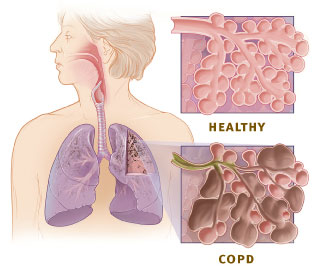Apart from genetically predisposed breast cancers, which are very difficult to control at present; there are many other factors, which can be controlled effectively to prevent breast cancer development. This was discussed in San Antonio Breast Cancer Symposium (SABCS) presented by the Institute of Medicine (IOM).
| Image via Wikipedia |
There are some recognized factors associated with risk of developing breast cancer;
- Ionizing radiation,
- Combination hormone replacement therapy,
- Smoking,
- Obesity and overweight,
- Unwillingness to breast feed babies,
- Sedentary lifestyle,
- Diabetes and,
- Alcohol.
Overweight and obese post-menopausal women have an increased risk of developing breast cancer because fat cells make oestrogen, and that hormone fuels the growth of most of breast cancers.
Researchers from departments of oncology and cancer epidemiology at Lund University evaluated health care data from a region of 1.5 million people living in South western Sweden.
They examined the records of 2,724 patients up to 10 years before they developed cancer and 20,542 patients who never developed the disease.
It was found that obesity in women after age 60 increased the risk of developing breast cancer by 55 percent. The chance of getting breast cancer is 15% in obese women in comparison to slightly less than 10% in the general population.
Women suffering from diabetes for 4 years had a 37% increased risk of developing breast cancer.
Too many medical tests, where there is risk of exposure to radiation exists, especially during childhood can have a role in DNA damage and initiation of breast cancer. Though how much radiation is too much has not been clearly defined, according to scientists two or three abdominal CT scans give as much as atomic bomb survivors received. Mammograms use minuscule amounts and should not be avoided. But, too many mammograms should e avoided at the same time.
There is possible risk of breast cancer from exposure to chemicals such as benzene, 1.3-butadiene and ethylene oxide found in the workplace, gasoline fumes, car exhaust, and cigarette smoke; although the evidence for a link with breast cancer is more limited or contradictory for those substances.
BPA (Bisphenol A) and certain other plastics ingredients those mimic the action of oestrogen have been linked to breast cancer, mostly in animals and lab tests, but, not enough to judge whether they harm people.
Other factors are more complex. Moderate alcohol consumption may lower the risk of heart disease but seems to raise the risk of breast cancer a little. Link to second hand smoke and night-time shift work have not been conclusively proved.
Breast feeding has a negative effect on development of breast cancer in women.
On the plus side, there's good evidence that hair dyes and non-ionizing radiation from cell phones and other electronics have no impact on a woman's chances of developing breast cancer.
Fruits and vegetables reduce the chance of catching breast cancer. Exercise also reduces the risk of breast cancer in multiple ways.
We can control many factors associated with increased risk of developing breast cancer to reduce the incidence worldwide.
Article Source: http://www.articlesbase.com/cancer-articles/factors-those-can-be-controlled-for-primary-prevention-of-breast-cancer-5465990.html
About the Author
Dr. Prahallad Panda, Surgeon, Paradip Port Trust, Paradip, Odisha, India. Author of free medical blog " From A Clinician's Bioscope can be accessed from here" and "> To view "Clinician On Net", go here.
...
Click here to Subscribe news feed from "Clinicianonnet; so that you do not miss out anything that can be valuable to you !!
...






